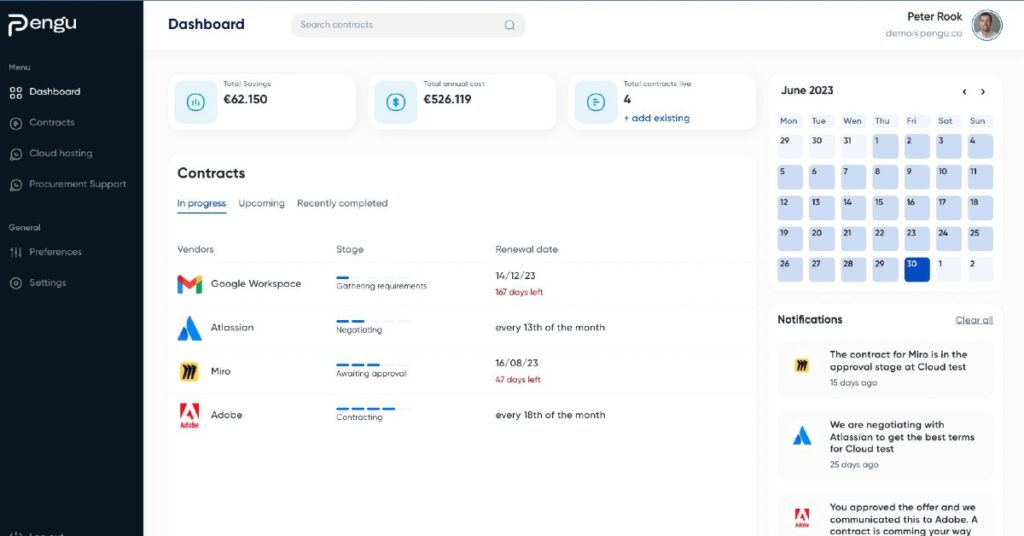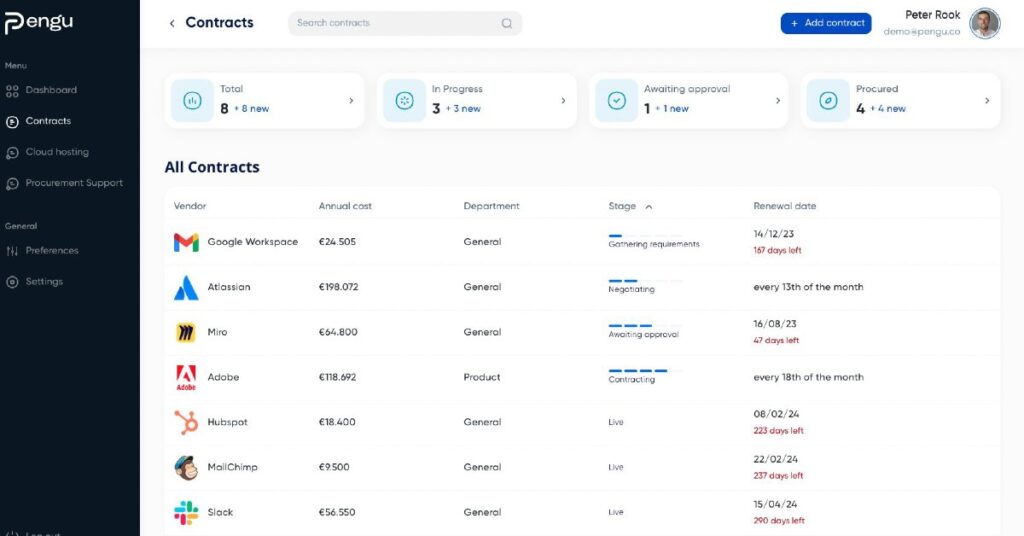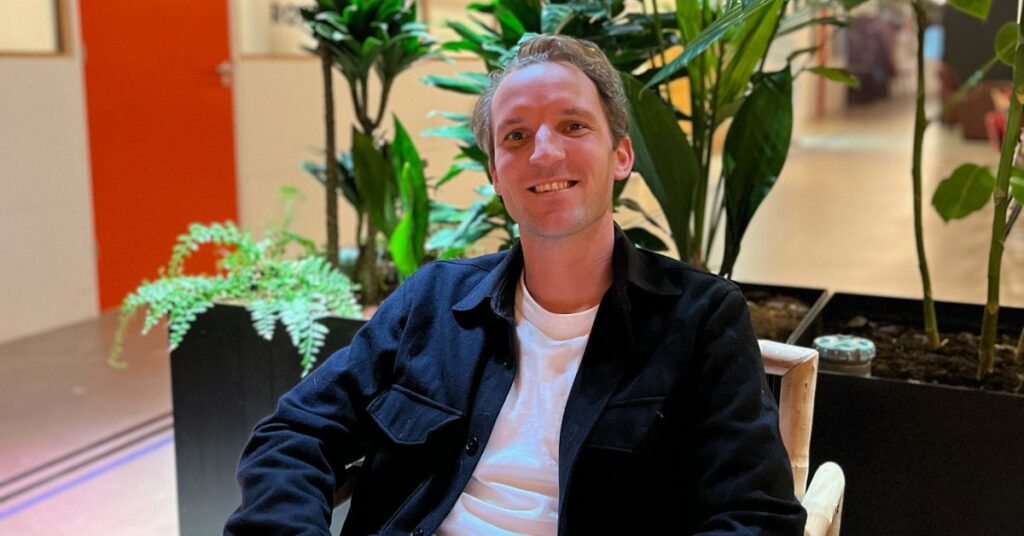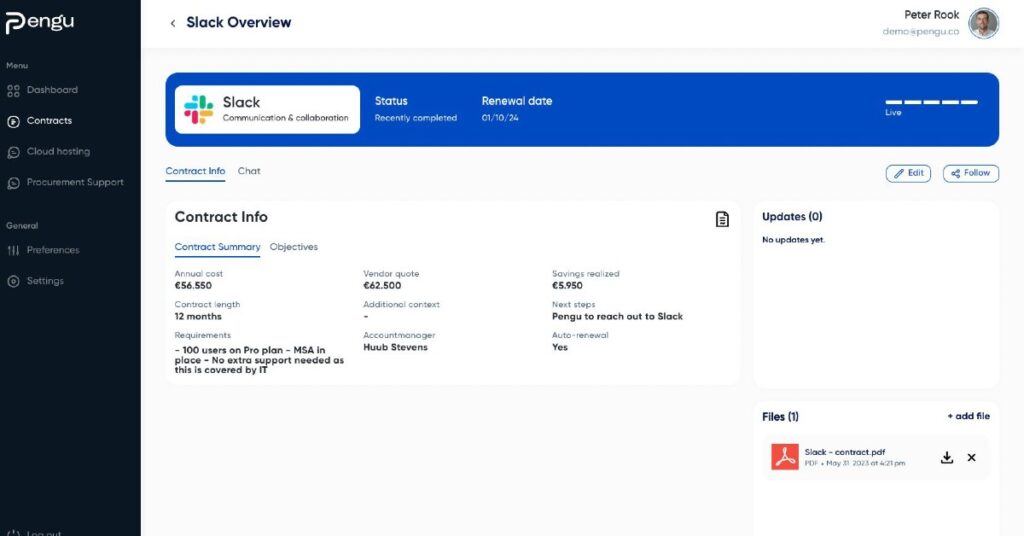What’s common between Dopper, ChannelEngine, and MatchWornShirt? They all use Pengu to cut down their SaaS application cost.
Like consumers troubled with inflation and rising prices of streaming services, businesses have also grown increasingly wary of the cost associated with SaaS applications.
The process of buying and renewing SaaS applications has become a technical quagmire, leading to lengthy and inefficient processes.
In the year of efficiency for businesses around the world, this lack of fair pricing in SaaS irked Edo Buziau and Philippe Stevens, the two SaaS executives with experience working at Salesforce, Zoom, Backbase, and others.
Buziau and Stevens co-founded Pengu, our startup of the month, last year to fix the SaaS buying journey.
Bringing transparency to SaaS buying

Since they began selling SaaS, the co-founders of Pengu were struck by the non-transparency in SaaS buying and renewing.
In order to make SaaS buying transparent, they began working on Pengu in late 2021 and came out of stealth in October last year.
The name Pengu, Buziau explains, was born while brainstorming on short and catchy names and they were eventually inspired by Pingu, a popular series from their childhood.
In order to validate their assumption about SaaS buying and renewing, they interviewed their peers, finance, IT leaders, and industry experts.
They found that “buyers find themselves lost in endless back-and-forth with vendors” without ever knowing if you are paying the right price.
Buziau says this happens because there is no data-driven insights to find whether a customer is paying a fair price for their SaaS purchase.
Another factor being that many SaaS customers don’t have the people, processes and platform to manage such procurement cycles effectively.
“When working for these big tech companies we were able to provide customers with 0 to 70 per cent discount on their licences, which shows the margins and flexibility these companies have,” says Buziau.
He adds, “We want to help everyone get access to fair pricing.”
Since its launch in October 2022, Pengu has added fast growing tech companies with no dedicated procurement department as clients.
In addition to the aforementioned Dutch companies like Dopper, Channelengine, and MatchWornShirt, Pengu is adding new customers on a weekly basis in the UK, Belgium, Norway, and Sweden.
Market validation

For SaaS sellers, it is inherently difficult to forecast deals in SaaS buying with an average of five decision makers in the process.
Stevens explains that they are trying to speed up this process by 6x with Pengu by knowing “how our customers make decisions and thus can get deals through quickly.”
Before they got to faster dealmaking, they needed to validate their idea with their target audience.
They engaged closely with CFOs, CTOs, and procurement managers to thoroughly understand their needs and challenges.
Stevens adds, “This has led to great new insights which allowed us to build a much stronger and more relevant product.”
Once they validated their assumptions, they began by first understanding the current SaaS landscape, where anyone and everyone can sign up and pay for the software subscriptions.
As software became available as subscriptions and vendors began targeting end users with their marketing, the buyer landscape has also changed, making it hard for IT and procurement professionals to keep track of all the licences in place and their usage.
Buziau further observes that answer to the question of how much to spend on software and across how many applications can be difficult.
“Procurement relies on manual methods to track and consolidate software that takes countless hours and are heavily sensitive to errors,” he says.
Data to unlock savings

Amsterdam-based Pengu solves this problem by helping SaaS buyers organise and streamline their software portfolio in one single dashboard.
The platform also leverages data and expertise of its founders to unlock savings. It also offers its customers unlimited access to a dedicated procurement professional, who does negotiations for renewals and new purchases on their behalf.
“We help you constantly monitor, negotiate and optimise your software stack to save you time and money,” explains Buziau.
What does this mean for end customers? Pengu claims an assured savings of up to 3X ROI.
Stevens says by leveraging data, expertise, and partnerships, they are able to provide their customers with the best possible deals in the market.
“Based on a free savings analysis we can see how much we can potentially save while working with Pengu,” he adds.
This analysis is now the cornerstone of Pengu and one the founders are confident will lead to tremendous savings on SaaS purchase for its customers.
“To date we have never had to repay a customer and we always save them more than we cost,” Stevens notes.
Pengu does all this by charging a subscription fee with a starter pack of €1,500 per month on annual SaaS spends up to €500,000.
The next tier called Professional is priced at €2,500 per month for those with annual SaaS spend between €500,000 and €2.5M and customers with over €2.5M annual SaaS spend are offered a custom plan.
This fee, Stevens explains, is related to the total software spend and is convinced that customers will get their spending back in the form of savings on SaaS purchase.
Expansion to cloud hosting

Software applications have evolved from a one-time licence model to subscription and they are also now increasingly being deployed through cloud infrastructure.
So, it shouldn’t come as a surprise that cloud hosting ranks as a top expense for businesses globally.
With AWS, Microsoft Azure, and Google Cloud, Buziau says customers need to commit to a multiple year contract in order to get a discount.
Since cloud hosting adopts a dynamic pricing model and customers themselves have the option to scale up or scale down their need, forecasting becomes even more challenging.
With Pengu, Buziau says customers can leverage their technology to auto-scale usage based on changing infrastructure needs and allows companies to access maximum discounts without any formal commitment.
Buziau says, “This solution allows our customers to pay only for what they need with an automated tool and supports our vision of automated and transparent software buying.”
Artificial Intelligence (AI) is now seen as one of the biggest accelerants of cloud computing cost and companies are leaving no stone unturned to adopt and deploy AI.
Gartner predicts spending on cloud hosting will grow by 17.9 per cent year over year during the next five years.
With every company adopting AI to transform their business practice, Pengu not only sees higher computing cost for customers but also an opportunity to enable instant savings for them.
A bootstrapped foundation

Another interesting thing about Pengu is how the founders have decided to build the startup.
For starters, Pengu is bootstrapped and its founders have no plans to go for external funding anytime soon.
Buziau says they spent the last year focusing on getting the foundation right by assembling the right team, product roadmap, and constantly validating their product.
Now that that product is already being used by its customers, they are now building upon that foundation to solve challenges faced by the customers.
While funding can accelerate a startup business, the founders of Pengu see it drifting their focus away from getting the foundation right.
“We are adding customers and thus revenue on a weekly basis,” he says, “and therefore funding is not required in this growth scenario.”
With a lean team of only five people at the moment and plans to add another five by the end of the year across roles like product, tech, and customer success, Pengu sees an opportunity to stay nimble and deliver growth.
As leading SaaS players embrace AI, Stevens says they are still at the very early stages of AI adoption.
The Dutch startup is consulting with a group of leading industry experts and subject matter advisors to plot the course for its own AI use.
“AI has only scratched the surface and it will enable companies to become more efficient, productive and competitive,” says Stevens.
For now, the startup is focusing on delivering maximum savings on SaaS buying and renewing to its customers.
With a product roadmap developed in close collaboration with its customers, the startup is also testing beta features like “tracking licence usage and AI powered recommendations.”
For the founders of Pengu, the definition of success is automating software buying and doing so in a way that brings significant savings to its customers.
Read the orginal article: https://siliconcanals.com/news/startups/pengu-amsterdam-saas-buying-renewing-savings/


